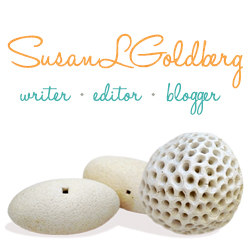The kids are still all right, already
/Guess what? It turns out that kids of queer parents are still doing just fine.
In my post this week at Today's Parent, I talk about the findings of the Australian Study of Child Health in Same-Sex Families, released Monday.
In fact queerspawn aren't doing just fine — they are doing the same as or better than their straight-reared peers, a finding that is consistent with other studies on the subject showing that queer families do better in part because we're less likely to abuse our children, divide up childcare and household responsibilities more equitably, talk to our kids about how their families were created, and teach our kids about activism bullying, and standing up for the underdog. Just for example:
Specifically, children of LGBTQ parents showed no difference on factors such as temperament, mood, mental health, and self-esteem, and scored six percent higher in the areas of general health and family cohesion. Researchers collected data from 325 families with a total of 500 children. […]
What I find striking about all the studies isn’t that kids of queer parents are just fine — better than fine in fact. What I find striking are two things. First, it’s astonishing to me that we still need to study the issue at all, rather than accepting as a foregone conclusion that kids with loving and committed parents tend to do well.
Second, and more important: good parenting outcomes don’t depend on sexual orientation or gender identity. Any set of parents, gay or straight, could divide up chores equitably. No parent ever has to hit a child. We could all learn how to tell the stories of our family’s origins and what makes us strong — and we could all teach our kids to stick up for themselves and for the underdogs. We could all stand up to bullies.
Photo Via Australian Marriage Equity



 Morning. Today, you can find me guest-posting over at the
Morning. Today, you can find me guest-posting over at the  If you know me at all well, or if you’ve been reading here for a while, you know about my ambivalent relationship to Mother’s Day. I thought I was done with the story, but you never really done with those kinds of foundational stories, are you? Here’s one more version,
If you know me at all well, or if you’ve been reading here for a while, you know about my ambivalent relationship to Mother’s Day. I thought I was done with the story, but you never really done with those kinds of foundational stories, are you? Here’s one more version, 



